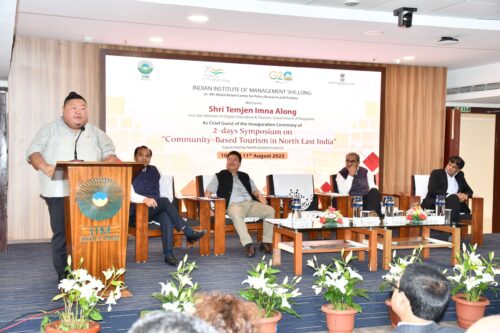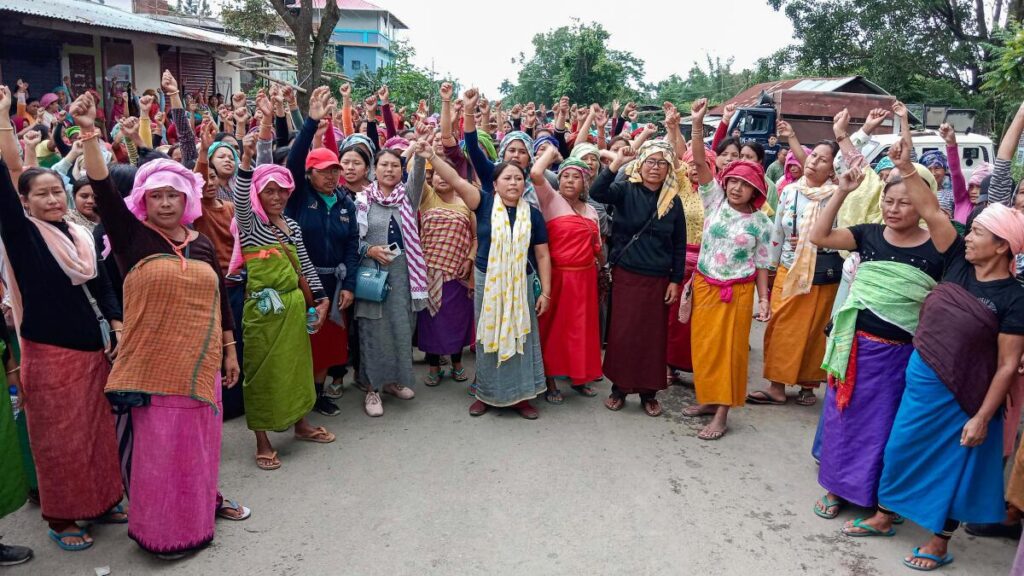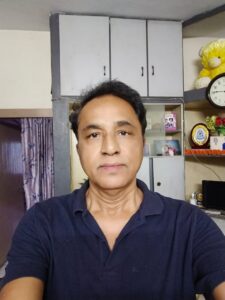Rama Krishna Sangem
Indian Institute of Management (IIM) Shillong conducted a two day Symposium on Community Based Tourism in North East India was organized by its Dr. APJ Abdul Kalam Centre for Policy Research and Analysis, on August 10 and 11.
The symposium was inaugurated by Temjen Imna Along, Minister of Tourism, Government of Nagaland, in the presence of Gaigongdin Panmei, IRS, NEC, Atul Kulkarni, BoG member of IIM Shillong, and Prof. D.P. Goyal, Director, IIM Shillong.
The Centre Coordinator of the Dr. Kalam Centre, IIM Shillong, Dr. Sanjeev K Ningombam, welcomed the dignitaries, esteemed guests, and all the participants to the event. Setting the tone of the symposium, Dr. Ningombam emphasized refining the CBT scenario and the need for a CBT model in NER, according to a press release from IIM Shillong.
Prof. D. P. Goyal in his inaugural address highlighted that government agencies and all tourism stakeholders should work in convergence. He also mentions that for a seamless tourist experience, the pain points should be removed and suitable strategies should be developed for promoting Destination North East. He highlighted that IIM Shillong being an institution of National Importance (INI) should have the responsibility of contributing to the region.
There are 390 students who joined IIM Shillong who are among the best minds of the country, and the newly designed Community Immersion Program for IIM Shillong students, where each student is required to visit and stay in Rural Communities, understand geographical and behavioral dynamics and can contribute by giving back to the communities in the form of sustainable ideas and business models. Tourism is an integral part of communities and IIM Shillong Students can contribute a lot in this field.
Panmei, addressing the gathering, focused on the call for a common tourism Policy. The need of the hour is to develop a matrix for circuits across all 8 states of North East India. Panmei highlighted that on the basis of the World Bank Group study and various other inputs and impressions available, 5 segments have been identified for special focus namely, Cultural tourism, Adventure tourism, Nature Tourism, Agro-Tourism, Health Tourism.
He mentioned that a common registration process for tourists traveling to NE should be initiated so that the traveler should feel comfortable in planning the travel. There is a need to sensitize the people at the village level about Community Based Tourism infrastructure, standardization of certain food menus, Improvement in presentation and packaging, and aggressive marketing of local cuisines among other important parameters.
Atul Kulkarni, a member BOG in his address, focused on how Community-based tourism (CBT) is fast becoming a great way for travelers to experience a unique type of travel while also making a positive contribution to rural communities. The beauty of community-based tourism is the fact that it allows local communities to have full ownership and management of the tourism experience, which in turn ensures that the economic benefits of tourism stay within their community.
Minister Temjen Imna Along highlighted the importance of experiential tourism at the community level, as tourism cannot function in a standalone manner. Experience through tourism should be the focus. The North Eastern Region should give the experience to tourists from other states and other countries. Things have changed drastically in the last 10 years, and with time, better connectivity across the states has changed the tourism scenario.



